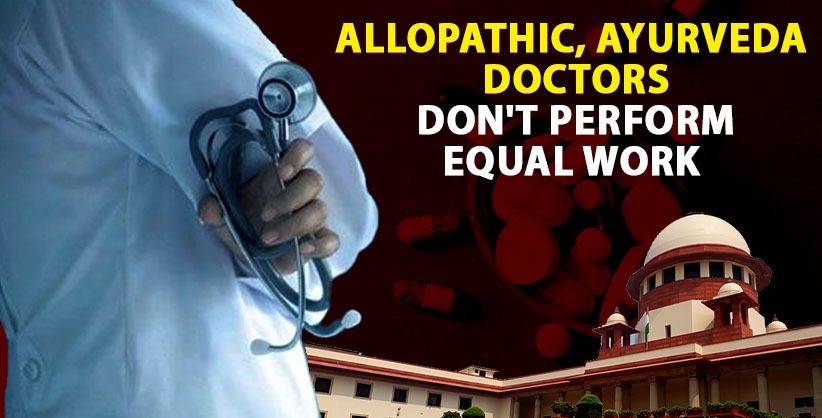NEW DELHI: The Supreme Court has on Wednesday Allopathic and Ayurveda doctors certainly do not perform equal work to be entitled to equal pay, while noting that the former undertook a number of duties, including emergency and trauma care, post mortem etc, which was not the case with alternative/indigenous systems of medicine.
The top court set aside a Gujarat High Court order, which held that Ayurveda practitioners working in government hospitals should be treated at par with doctors holding MBBS degrees and they are entitled to equal pay.
"Even while recognising the importance of Ayurved doctors and the need to promote alternative/indigenous systems of medicine, we cannot be oblivious of the fact that both categories of doctors are certainly not performing equal work to be entitled to equal pay," a bench of Justices V Ramasubramanian and Pankaj Mithal said.
The bench pointed out it is common knowledge that during out-patient days (OPD) in general hospitals in cities/towns, MBBS doctors are made to attend to hundreds of patients, which is not the case with Ayurveda doctors.
Section 176 of CrPC deals with inquiry by Magistrates into the cause of death. Sub-section (5) of Section 176 uses similar words namely civil surgeon or other qualified medical man. We do not think that the AYUSH doctors are normally notified as competent to perform post-mortem, the bench further said.
The court's judgment came on a batch of appeals filed by the Gujarat government and others challenging a 2012 High Court order, which held that Ayurveda practitioners are entitled to be treated at par with doctors with MBBS degrees.
By the very nature of the science that they practise and with the advancement of science and modern medical technology, the emergency duty that allopathy doctors are capable of performing and the trauma care that they are capable of providing cannot be performed by Ayurveda doctors, the bench said.
The bench also said it is also not possible for Ayurved doctors to assist surgeons performing complicated surgeries, while MBBS doctors can assist.
"We shall not be understood to mean as though one system of medicine is superior to the other, the bench added.
The bench said though it is not its mandate nor within its competence to assess the relative merits of these two systems of medical sciences and as a matter of fact, we are conscious that the history of Ayurveda dates back to several centuries.
"We have no doubt that every alternative system of medicine may have its pride of place in history. But today, the practitioners of indigenous systems of medicine do not perform complicated surgical operations. A study of Ayurveda does not authorise them to perform these surgeries, the bench said.
As for principle, the court also pointed out it is clear that the classification based upon educational qualification is not violative of Articles 14 and 16 of the Constitution.







